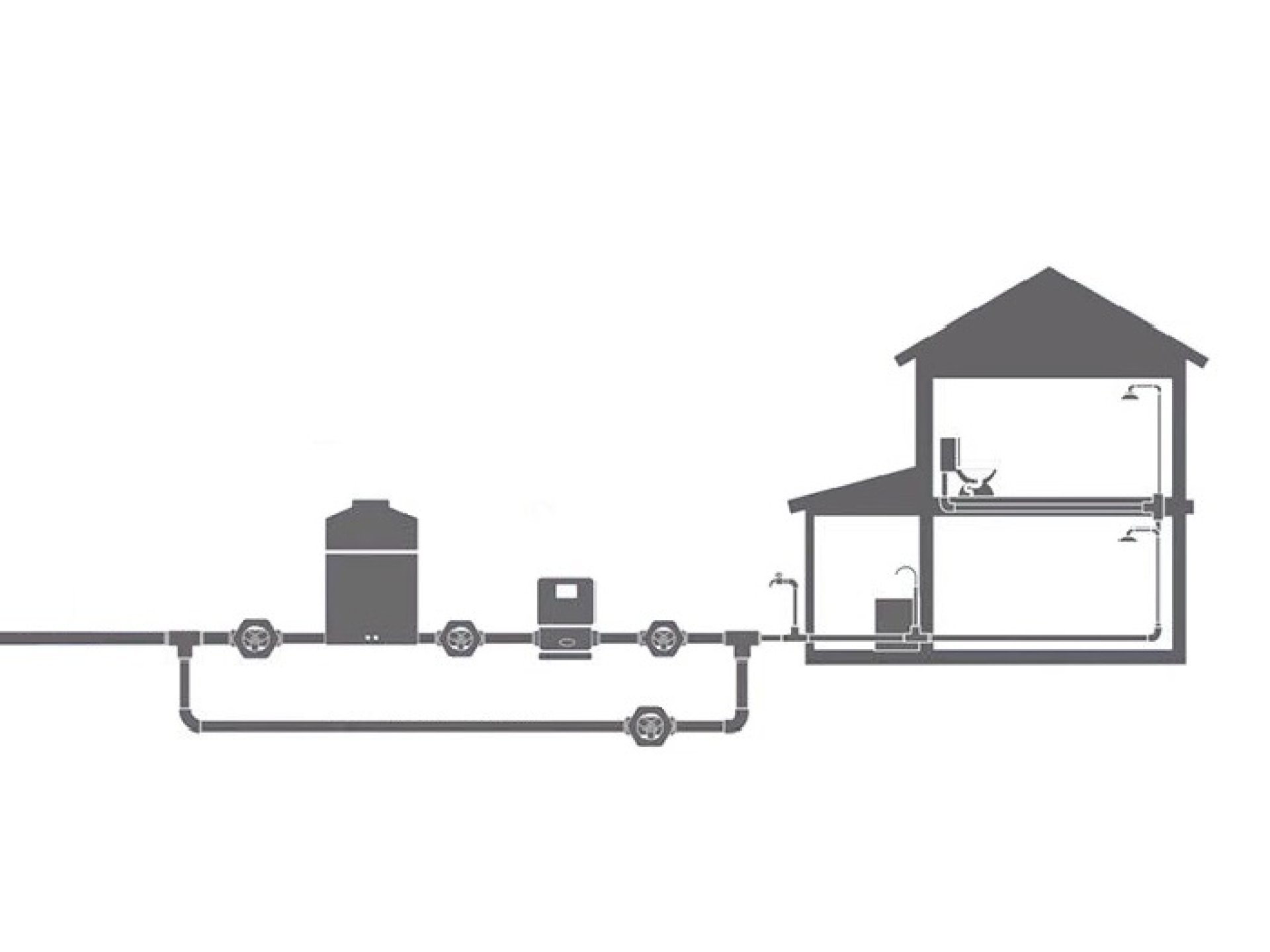How should homeowners choose a water pump for their home?

There are many brands and types of household water pumps available on the market. They are divided into the following types:
Type 1: Pressure tank water pump
Or what is called a round tank water pump, it is cylindrical in shape. It works by replacing the air in the pressure tank with water to use the air pressure to push the water out. It is a popular pump that has been around for a long time before other types. The structure is not complicated, easy to install and maintain, and can be used for a long time. It provides more pressure than a constant pressure water pump. However, the water pressure may not be consistent, it is noisy, and after using it for a while, the air volume will gradually decrease. Water will replace the pressure tank. The pump will cut off frequently (but it can be fixed by purging the air). In addition, if the tank is made of steel, it may rust after using it for a long time. But you can replace the tank. And now there is a type that has a tank made of real stainless steel, formed without welds, eliminating the problem of rust and leakage. It is more durable, but the price is higher than a normal round tank water pump.
Type 2: Constant pressure water pump
Or what is called a square tank water pump, it is square in shape. It works by using nitrogen gas compressed in a round cylinder to increase the pressure. There is a diaphragm air bag between the water and the nitrogen gas. Which will provide more constant pressure than a normal pressure tank, causing the water from the faucet/shower to flow equally at every point in the house, helping to solve the problem of turning on the water downstairs and the water upstairs flowing weakly, including helping to maintain a constant temperature of the water heater. Suitable for houses that use water at many points at the same time. Most of the equipment and parts are plastic, so they do not rust (but should not be exposed to sunlight because plastic and rubber will deteriorate quickly). In addition, constant pressure water pumps are more expensive than pressure tank water pumps. And when using, they should be checked regularly because nitrogen gas may leak.
Type 3: Inverter water pump
Inverter water pumps are similar to square tank pumps in that they provide constant pressure, but they add an inverter system that can adjust the motor speed to fit the usage. The inverter will control the rotation of the motor according to the actual water usage. When using a lot of water or using water at many points, the motor will rotate faster to allow the water pump to supply more water. When using less water, the motor will rotate slower. The resulting water will flow strongly and consistently. The pressure can be adjusted as desired. It is quiet like a normal constant pressure water pump and is more energy-efficient than other types of water pumps. But the price is about 2-3 times higher than a normal water pump. And if it is damaged, it must be sent to a repair center only.
Type 4: Turbine water pump
Turbine pumps or impeller pumps Developed from the centrifugal pump used in agriculture, it is a system that has an air compressor tank as well, but uses a propeller to increase water pressure (each brand has different characteristics and number of propellers). With a pressure switch as a device to control the appropriate water pressure, it provides more water, strong water power, and constant water pressure. Suitable for houses that use water at many points at the same time with various equipment that requires high and consistent water supply, such as rain showers, water heaters, Jacuzzi bathtubs, flush valves, etc. Another advantage of the turbine pump is that it is quiet, suitable for urban communities with fences next to neighbors who must be careful about noise.
When we know all the types of water pumps in the house, we should consider the properties that are suitable for use and the size or electrical power that we call in watts. Each model of water pump will be available in many sizes according to the wattage, which affects the delivery distance and water volume (liters/minute). A high-wattage pump will provide more pressure and water volume. The number of faucets that can be used for water at the same time will also be higher. For general houses (that do not have equipment that requires a particularly high water supply), you can roughly see from the number of floors and the number of points that are expected to use water at the same time.


